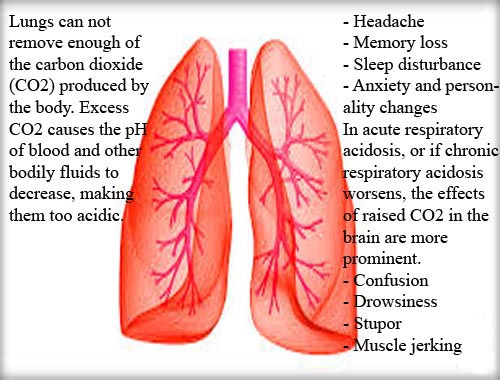Respiratory acidosis
Kidney increases retention of HCO3- and excretion of acid. Respiratory acidosis is a condition that occurs when the lungs cannot remove all of the carbon dioxide the body produces. This causes body fluids, especially the blood, to become too acidic. Causes of respiratory acidosis include: Diseases of the airways (such as asthma and chronic obstructive lung disease); Diseases of the chest (such as sarcoidosis); Diseases affecting the nerves and muscles that "signal" the lungs to inflate or deflate; Drugs that suppress breathing (including powerful pain medicines, such as narcotics, and "downers," such as benzodiazepines), especially when combined with alcohol; Severe obesity, which restricts how much the lungs can expand; Chronic respiratory acidosis occurs over a long period of time. This leads to a stable situation, because the kidneys increase body chemicals, such as bicarbonate, that help restore the body's acid-base balance. Acute respiratory acidosis is a condition in which carbon dioxide builds up very quickly and before the kidneys can return the body to a state of balance. Symptoms may include: Confusion; Easy fatigue; Lethargy; Shortness of breath; Sleepiness
